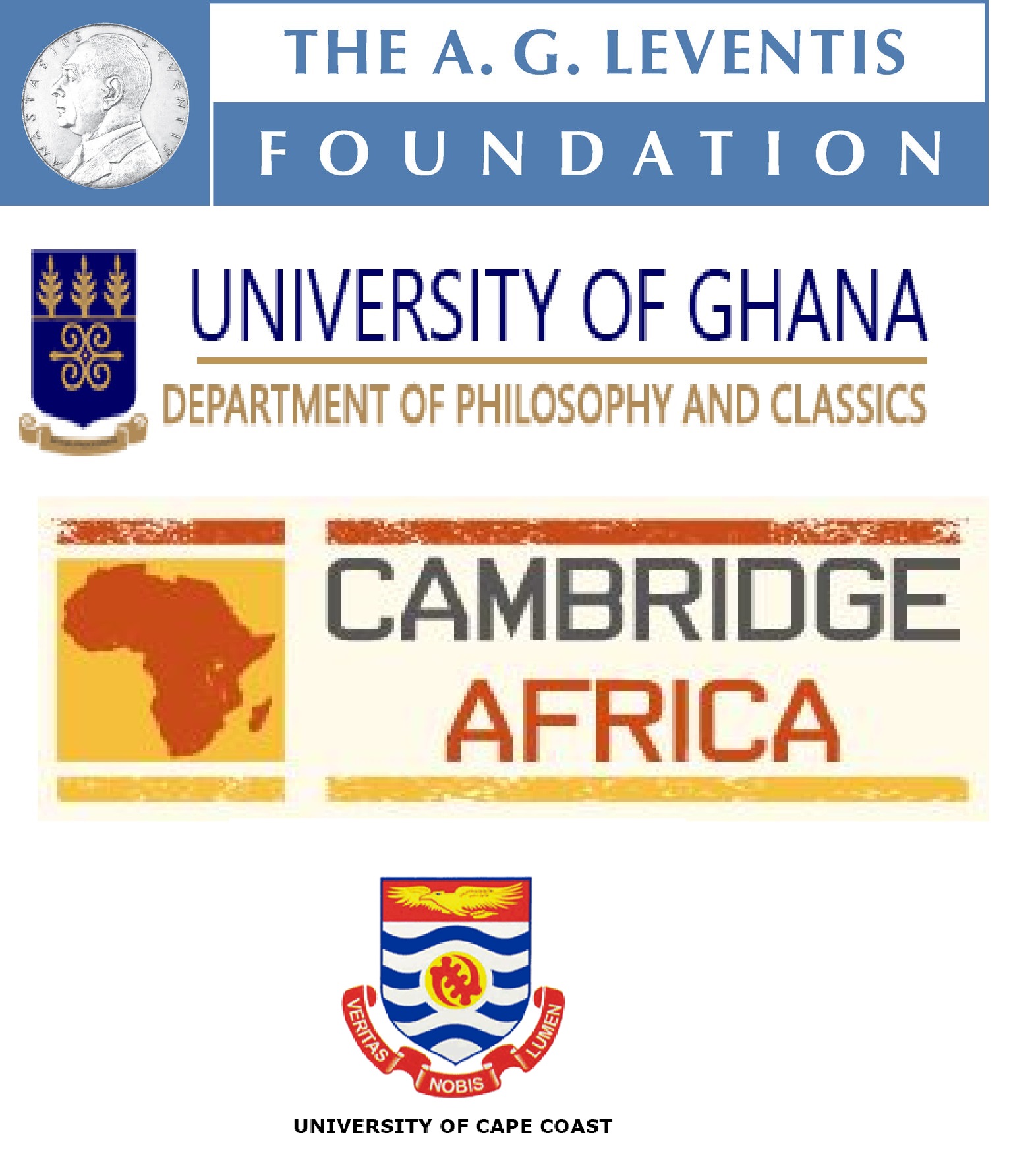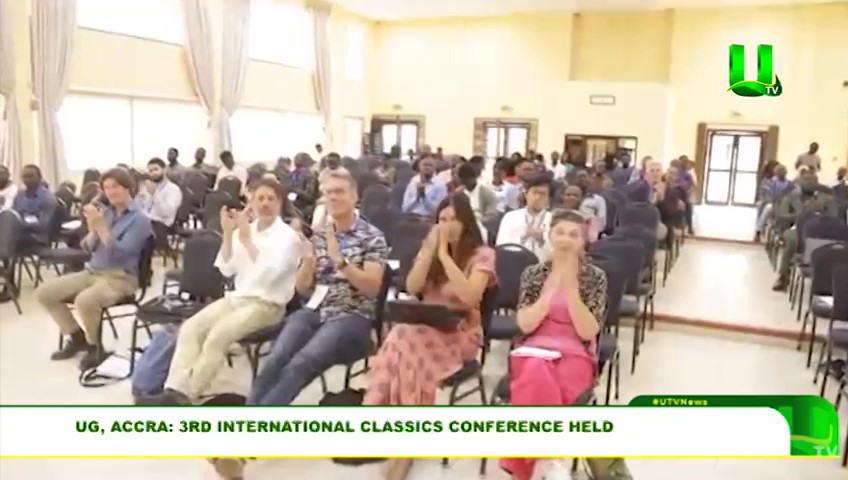Establishing collaborative links with universities across the world, particularly in parts of the world that were formerly under British rule, forms a crucial part of attempts to reclaim Classics from its colonial legacy and reinvigorate the discipline. The Faculty has a standing commitment to this work, which involves direct engagement with the history of Classics across the world and to ensuring the future of Classics as an area of inquiry open to all.
The Classics Beyond Borders project is an important part of the Faculty of Classics’ commitment to ensuring that the discipline thrives as a more diverse and inclusive scholarly endeavour and demonstrates our determination to take concrete positive steps to foster dialogue with Classicists across the world. We have been supported by the ALBORADA fund from Cambridge Africa, the A. G. Leventis Foundation, and the Faculty of Classics. The project is part of the Global Humanities Initiative.
The project is led by Dr Frisbee Sheffield who is supported by Dr Rosanna Omitowoju and Professor James Warren.
Our first collaboration is with Classicists and Philosophers at the University of Ghana and the University of Cape Coast, Ghana. Classicists in Ghana are at the forefront of liberating the subject from its colonial past and Ghana remains the only country in West Africa where Classics is studied in two public universities (the University of Ghana since 1948, and the University of Cape Coast since 1963). Developing connections with Ghana promises to open up new possibilities for research and teaching in our discipline: in the UK, we need to invest in more and better intercultural dialogue – appreciating new and distinctive approaches to the subject from our Ghanaian colleagues promises to fuel new research avenues and to diversify the discipline; to that end, we need to investigate mechanisms for widening access for African students and to start collaborations with colleagues beyond borders.
The Collaboration so far
Read Dr Sheffield's blog for Cambridge-Africa (April 2024).
In 2022-3 we began this collaboration with a set of joint seminars and conferences focussing on Plato on community, a topic in which researchers in Cambridge and in Ghana are already interested.
We have collaborated on the core research project: “Plato and Political Community” by means of a hybrid seminar and two conferences. We showcased this work at a successful panel presentation at the annual Classical Association Conference in 2023 in a panel called “Classics Beyond Borders: Plato on the Nature and Value of Community”. Two papers from Cambridge scholars and two papers from colleagues from Ghana were delivered on the topic of Plato and community. We presented new work on leading African philosophers, such as the writings of the first president of Ghana, Kwame Nkrumah, and leading exponents of modern African Philosophy, such as Kwame Gyekye and Kwasi Wiredu.
We held a flagship conference at the University of Ghana in September 2023 to disseminate the results of the collaboration so far with colleagues and students in Ghana and beyond.
We have also been assisting the University of Ghana's teaching programme in classical languages by arranging an online course for postgraduate students. Languages remain one of the biggest barriers for access for African students seeking entry into UK and US graduate programs in Classics and this strand of the project is designed to fill that gap. Rosanna Omitowoju, who leads this strand of the project with Daisy Belfield Santos, plans to extend this provision next year and to work together with her Ghanaian students to produce translations of Greek and Latin texts into local African languages.
To support this project, we increased access in Ghana to monographs and journal provision in collaboration with Oxford University Press and Cambridge University Press. Through our contacts with the Classics and Philosophy editors at each Press we have ensured that the University of Ghana has access to Cambridge Core Online, Oxford Scholarship Online, and Oxford Scholarly Editions.
In 2024, the project helped to sponsor a two-day conference in Cambridge: Ancient Philosophy and Science Beyond Borders. Speakers from a range of disciplines (including Classics, Philosophy, History and Philosophy of Science, Theology, and Asian and Middle Eastern Studies) discussed a range of texts, ideas, and figures from ancient Chinese, Egyptian, Greek, Indian, Jewish, and Mesopotamian traditions of thought.
The Classical Association of Ghana conference 2024, Classics Beyond Borders
The Classical Association of Ghana hosted the 2024 Classics Beyond Borders conference, which was supported by the Faculty of Classics at the University of Cambridge, the University of Toronto and the Loeb Foundation.
This was the largest such conference ever held in West Africa, both in terms of numbers and diversity. It not only had the biggest participation from Africa, but it brought together scholars from across Africa (five countries) - many of whom had not previously met each other (East Africans attended for the first time), with scholars from across Europe, North America, Australia and Asia. This historic conference made national television and left participants with a sense that Classics is not just surviving in Africa, but thriving.
Click on the image to watch the News item.
A translation of the report by Michael Okyere Asante is also available.
This was a two-day event with three keynote speakers (Professor Rachel Barney from the University of Toronto, Professor Kofi Ackah from the University of Ghana, and Professor Dan Orrells from Kings College London), various panels to integrate the 41 papers and 106 participants. It began with a panel involving high ranking officials from the University of Ghana: the Provost of the College of Humanities, Professor Joseph Awetori Yaro and the Dean of the School of Arts, Professor Wazi Apoh and the Head of Department of Philosophy and Classics, Dr Richmond Kwesi. This showed the level of support at all levels of the university for the work being done by the Classical Association of Ghana to foster a vibrant and international Classics community.
The conference was remarkable for its collaborative vitality. Participants of all ‘ranks and levels’ engaged in an open, receptive, intellectually rigorous, and warm and supportive manner.
The conference delivered a vivid sense of what Classical topics are of interest currently in a range of African countries, which included: Roman History, ancient Greek Philosophy, Greek drama, Latin literature, Greek history, the history of Classics in Malawi, the history of Classics in Ghana, the Romans in North Africa, Africa’s Classical World and Classical Reception.
Distinctive approaches included an emphasis on relevance and comparative studies. There were a number of papers that used the Classics to address Ghana’s contemporary political challenges (issues of leadership, public sector corruption, democracy and law). Comparative approaches included putting into dialogue Ghanaian philosophers (such as Wiredu and Nkrumah) with Plato, the legal framework of Ghana with Livy and Cicero, traditional African religiosity with Greek tragedy, and Brazilian speech performance which uses Classical stories to bridge indigenous culture with contemporary realities.
The Classical Association of Ghana plays a vital role in promoting and preserving the study of Classics in Ghana. Its members are passionate about the growth and promotion of Classical studies, fostering academic research, organizing educational events, and supporting the teaching of Latin and Greek. They welcome further international collaborations to build on the strength of this recent conference.
Michael Okyere Asante, member of the organising committee for this conference said:
“This collaboration with the Faculty of Classics at Cambridge and their Classics Beyond Borders initiative has opened avenues for a renewed interest in the discipline of Classics across all institutional levels at the University of Ghana. We now need to consolidate the energy and interest this conference has generated and expand our networks more widely. To this end, we invite colleagues from the UK to establish relationships with students and colleagues in Africa”.
Dr. Richmond Kwesi, the Head of the Department of Philosophy and Classics added the following:
"Our department aims at pursuing research that advances the development of humanity and society through critical analysis, reflection, and understanding of our historical, existential, and intellectual experiences. We want to make our department the hub for African Classics and Classics in Africa, which should lead to the establishment of an African Centre for Classical Studies. I am glad that this collaboration with Faculty of Classics at Cambridge has brought us closer to the realization this goal. We are interested in three broad kinds of collaborative enterprises: (i) jointly hosting series of events, workshops, conferences; (ii) fostering a relationship involving staff and student mobility; and (iii) research collaborations, and joint projects and publications. For further details, please contact Richmond Kwesi as HOD: rkwesi@ug.edu.gh
Postdoctoral and other funding
We have also funded a post-doc who is working on a Ghanaian philosopher (a former enslaved person) who wrote philosophical treatises in Latin. Stephen Oppong Peprah, who completed an MPhil in Cambridge and a PhD in Prague will be a Bye-Fellow at Girton college for 2022-3 and will provide assistance to the project while working on his own research on Anton Wilhelm Amo (c. 1703-1759). Amo was perhaps the first African to study in a modern European University. Until recently, Amo’s philosophy was little known. The motivation behind Stephen’s research on Amo is to make his philosophical works accessible to a wider audience, especially Ghanaian students and researchers.
We also funded a Visiting scholarship for Michael Asante from Ghana who came for over a moth to stay at Clare Hall. He delivered the 2023 Equality, Diversity and Inclusion lecture this year to the Faculty of Classics on Global Classics in Africa, and disseminated his research more widely to students and staff alike.


